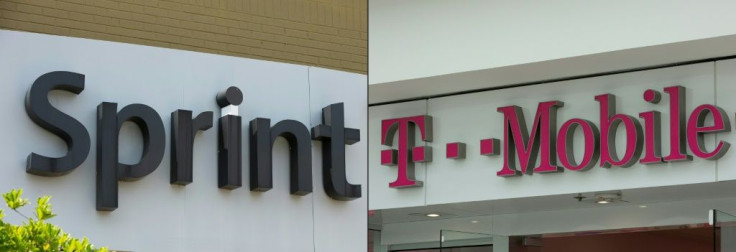Antitrust Enforcers DOJ, FCC Go To Bat For T-Mobile-Sprint Merger

KEY POINTS
Opponents claim the merger will raise mobile service prices
T-Mobile and Sprint are the third and fourth largest mobile carriers in the U.S. A merger would make them the second-largest
Closing arguments in the suit to block the merger are expected to occur in January
The nation’s biggest antitrust-fighting agencies came out on Friday in favor of the $26 billion merger of T-Mobile (TMUS) and Sprint (S) by filing legal papers that criticize efforts to block the deal.
The Department of Justice and the Federal Communications Commission filed a legal document assuring that the proposed merger would not hurt competition in the telecom industry. The agencies said they already secured a number of commitments and concessions from the two mobile carriers, including a pledge the merged company will build next-generation wireless networks, also known as 5G. In addition, the carriers also agreed to sell off some assets to DISH Network Corp. (DISH), the satellite provider.
The DOJ and FCC approved the merger, in July and October, respectively, but the deal has faced opposition from a group of 14 state attorneys general who claim such a merger of two telecom giants could lessen competition and push up prices for mobile services, particularly in low-income areas.
T-Mobile and Sprint are the third and fourth largest mobile carriers in the U.S. by subscribers. AT&T Mobility and Verizon Wireless hold the first and second spots, respectively. The merged entity would surpass Verizon.
“Competition between these four [mobile carriers], and especially between Sprint and T-Mobile, has resulted in enormous benefits for consumers, including lower prices and innovative features like no-contract plans and unlimited data plans. Unsurprisingly, this 'four to three' merger would dramatically increase market concentration in an already highly concentrated industry," a court document filed earlier this year by New York Attorney General Letitia James and California Attorney General Xavier Becerra stated.
Later Pennsylvania Attorney General Josh Shapiro said the merger “would severely undermine competition in the telecommunications sector, which would hurt Pennsylvania consumers by driving up prices, limiting coverage and diminishing quality.”
The DOJ and FCC claim that preventing the proposed merger might harm rural carriers, who eventually would benefit from the efforts to build 5G.
“Specifically, T-Mobile has committed to providing 5G coverage to 85% of the rural population within three years, and 90% of the rural population within six years,” the agencies stated in the filing.
They also argue the states’ challenge would undo some of the consumer benefits and concessions the federal government secured from the carriers during its review of the merger.
"A group of 13 states and the District of Columbia seek to block the merger in its entirety," the filing said. "In doing so, they ask this court to undo the benefits of the relief secured by the antitrust division and the FCC."
Judge Victor Marrero, who is overseeing the case in a New York federal court, has already heard two weeks of testimony from various economists and telecom executives, including T-Mobile CEO John Legere and Dish Chairman Charlie Ergen.
Closing arguments are expected in January.
© Copyright IBTimes 2025. All rights reserved.





















